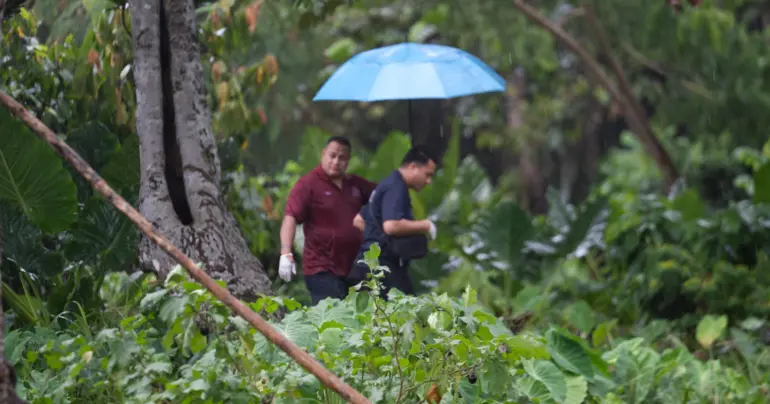Central Bank cracks down on “One Coin” scheme
The Governor of the Central Bank of Samoa, Maiava Atalina Ainu’u-Enari, has confirmed an investigation into a scheme which uses middlemen to collect people’s money in the hope of gigantic returns.
Speaking to the Sunday Samoan, she confirmed that they are investigating an ongoing scheme in Samoa known as “One Coin” or “One Life.”
She declined to name any of the suspects. She also declined to confirm or deny reports that some prominent Church Ministers are involved.
But Maiava said the Central Bank is taking the matter seriously.
“There are people and organizations currently under our microscope, but this is part of ongoing enquiries and our investigation,” she told the Sunday Samoan.
The scheme is alleged to involve some people and organisation in Samoa who use local agents to collect people’s money in the hope of gigantic returns.
“You invest $1,000 and then in four months, your cash is 10 times more, which means you cash in $10,000,” she said.
“This is a snare that is used to catch people’s money.”
As of today, the Central Bank of Samoa is looking at other measures to ensure that there are no more victims of this scheme.
“We are currently working proactively to ensure that our people are well informed and well prepared to counter these types of investment schemes,” Atalina said.
“Besides the media campaign that we are doing in prompting people to be extra careful when investing their hard earned money in businesses that are difficult to understand or a very complex, we are also ensuring that our commercial banks and money transfer operators assist us in preventing people sending money overseas without proper supporting documentations."
“Rome was not built in one day, as the saying goes, so we are slowly building our awareness campaigns, awareness programmes and internal controls within the financial system.”
Maiava said the problem is not confined to Samoa.
“We foresaw this happening in the country, as it has already happened in other countries as well,” she said. “Take for example China, one of the robust economies in the world today. And yet, they have banned cryptocurrency."
“We conducted a lot of research into this and the issue is with middlemen and agents posing themselves as legitimate entities on behalf of these cryptocurrency companies or organizations."
“The technology of cryptocurrency has a lot of teething problems at the moment so what we have done so far is to capture these cryptocurrency and their promoters under our current Money Laundering Amendment Bill 2018, which is currently in finalization stages at the Office of the Attorney General after various consultations with all the relevant stakeholders.”
She also called on members of the public to be extra careful.
“Before you invest your hard earned money, please make sure that you understand what business that you are investing in. Is it legitimate, is it real, are the profits or returns realistic?"
“Also, these cryptocurrencies are not regulated. There are no laws to govern it as opposed to the physical money that we are currently using."
“To reiterate, are you going to put your trust in cryptocurrency or One Coin or One Life that is not governed or regulated by any laws, which cannot track how you are really investing your money?"
“Or are you going to put your trust in the Central Bank of Samoa and the physical currency or tala and coins that we issue, which is in accordance with the laws passed by Parliament and enforced by the Government of Samoa?”
Maiava made it clear that in order to legally conduct business in Samoa one must have a business license.
“If you don’t have a business license authorising the type of business that you are doing, then you cannot conduct business at all."
“If people conduct business and collect people’s monies and then try to send them overseas, then that is an illegal type of business."
“Pyramid schemes or get rich quick schemes have been in existence in Samoa for quite a while."
“It happened before a few years back when we prosecuted the Ufund case, which was thoroughly covered in the media at that time.”











